The Ecuador - European Union Trade Agreement pays off
Published on 12 February 2019
After a delay of five years in comparison to Peru and Colombia, Ecuador managed to enforce the release of its trade with the bloc, with good results.
Many times the problems of commercial treaties are discussed to bring real benefits to the population. The arguments used tend to be based on the fact that they mainly benefit exporters from industrialized countries, and that those who base their offer on raw materials or agricultural products end up losing the opportunity to generate labor.
However, reality shows that not everything should be seen in terms of trade balance or jobs in industries. The signing of the Ecuador - European Union Trade Agreement has allowed, since 2017, Ecuadorian products to open their way to destinations for which they previously faced restrictions, such as the tariff on banana exports, which will have dropped from € 132 in the 2017 up to € 75 in 2020.
It should be noted, however, that everything has been part of a negotiation that led to a certain persistence of barriers on both sides, which, although it does not become as favorable in net terms for the whole economy (ie, thinking beyond the sectors directly involved and including all others, and consumers seeking lower prices), led to a better point than the initial, as will be shown by the figures presented below. On the Ecuadorian side, it was decided to protect part of the production by excluding certain products in the treaty: meats and processed beef and poultry, rice and derivatives, frozen potatoes, etc., which together account for 60% of production Ecuadorian agricultural
Despite this, Ecuadorian exports have had a strong improvement. In 2017, the first year of validity of the agreement, the value sent to Europe grew 12%, an increase equivalent to US $ 300 million. In 2018 things went even better: between January and September, shipments to Europe generated revenues of US $ 2,474 million, 77% more than in the same period of the previous year.
Next, we review the offer of the most outstanding Ecuadorian products in their main European destinations.
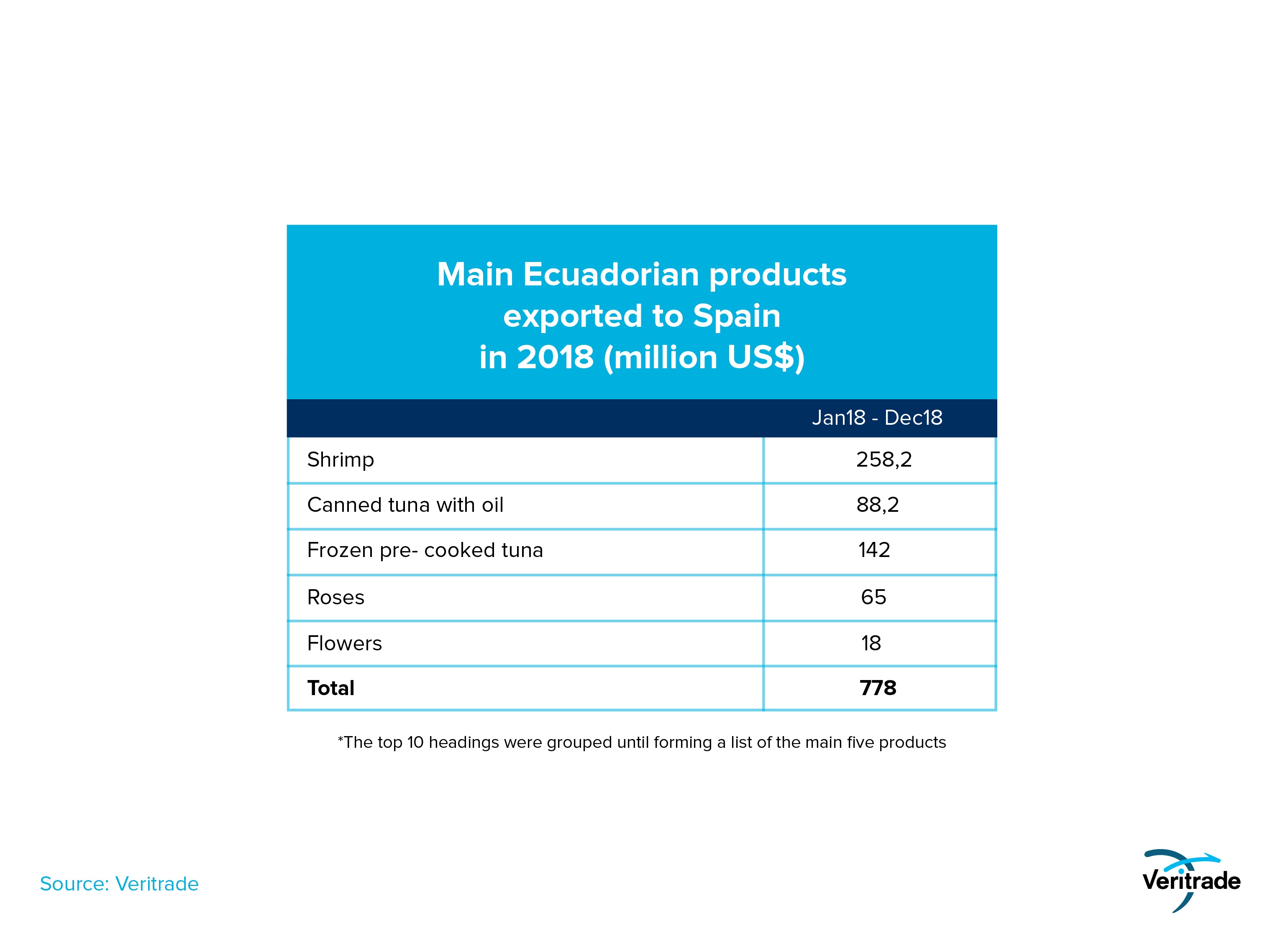
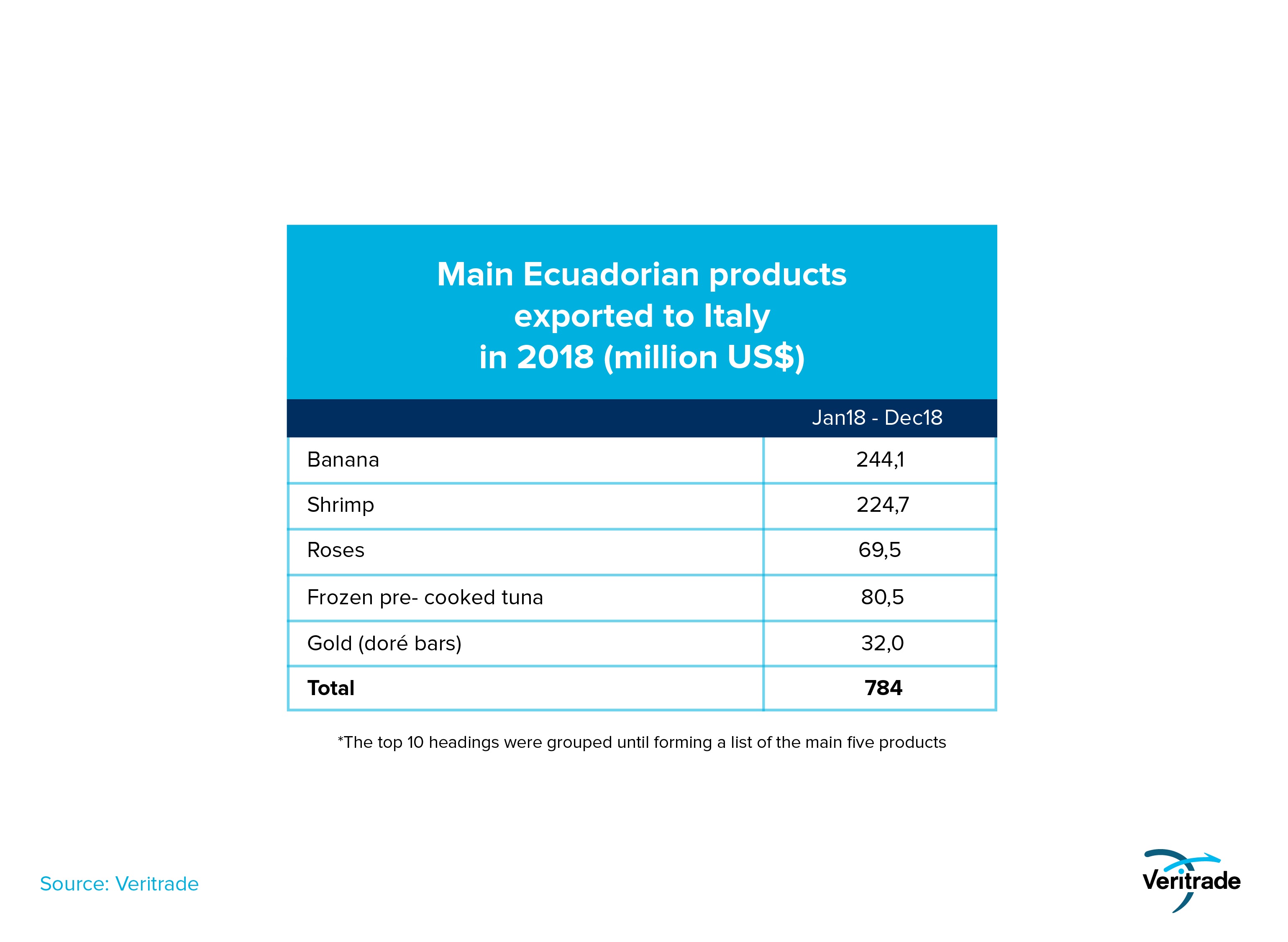
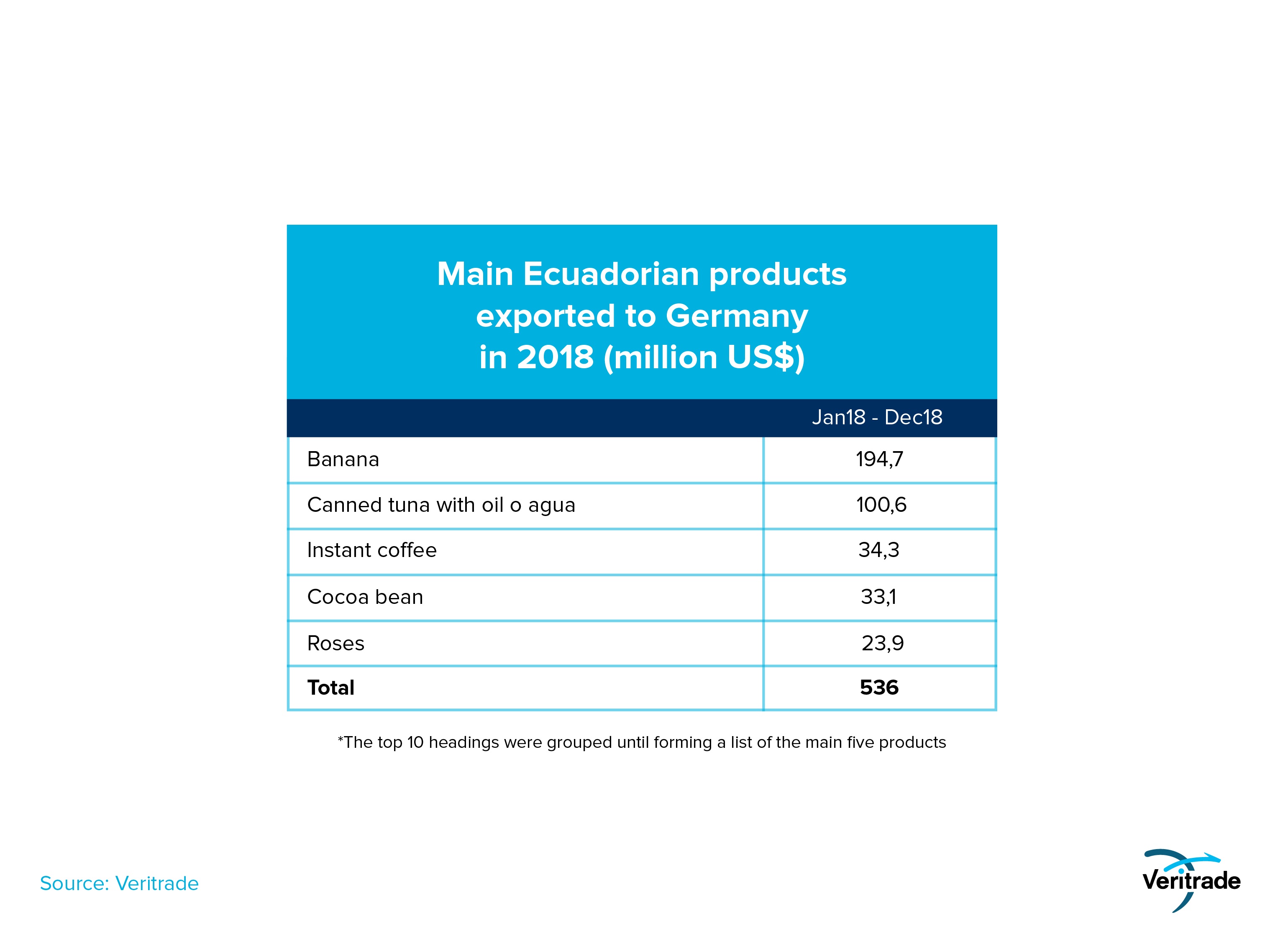
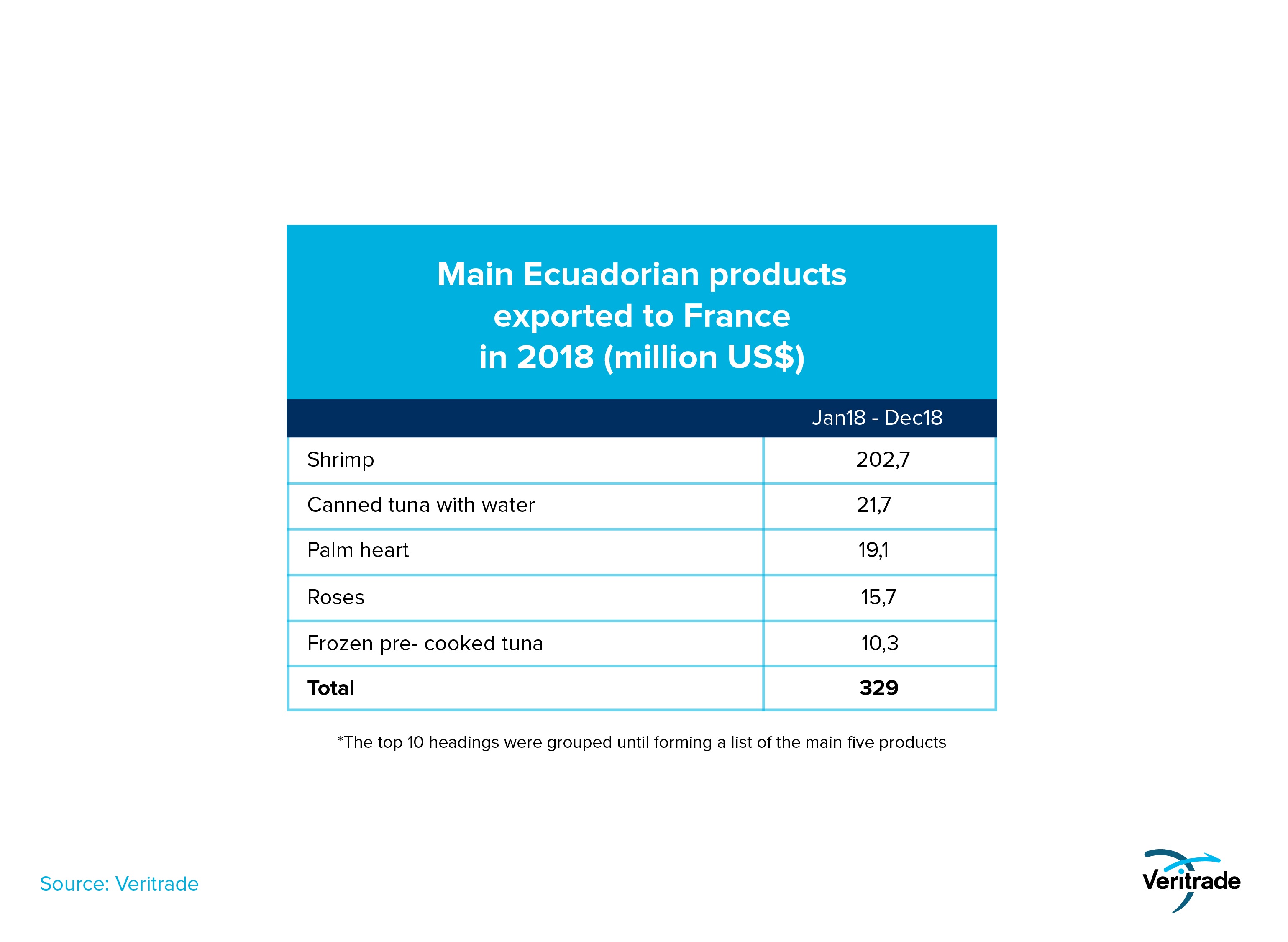
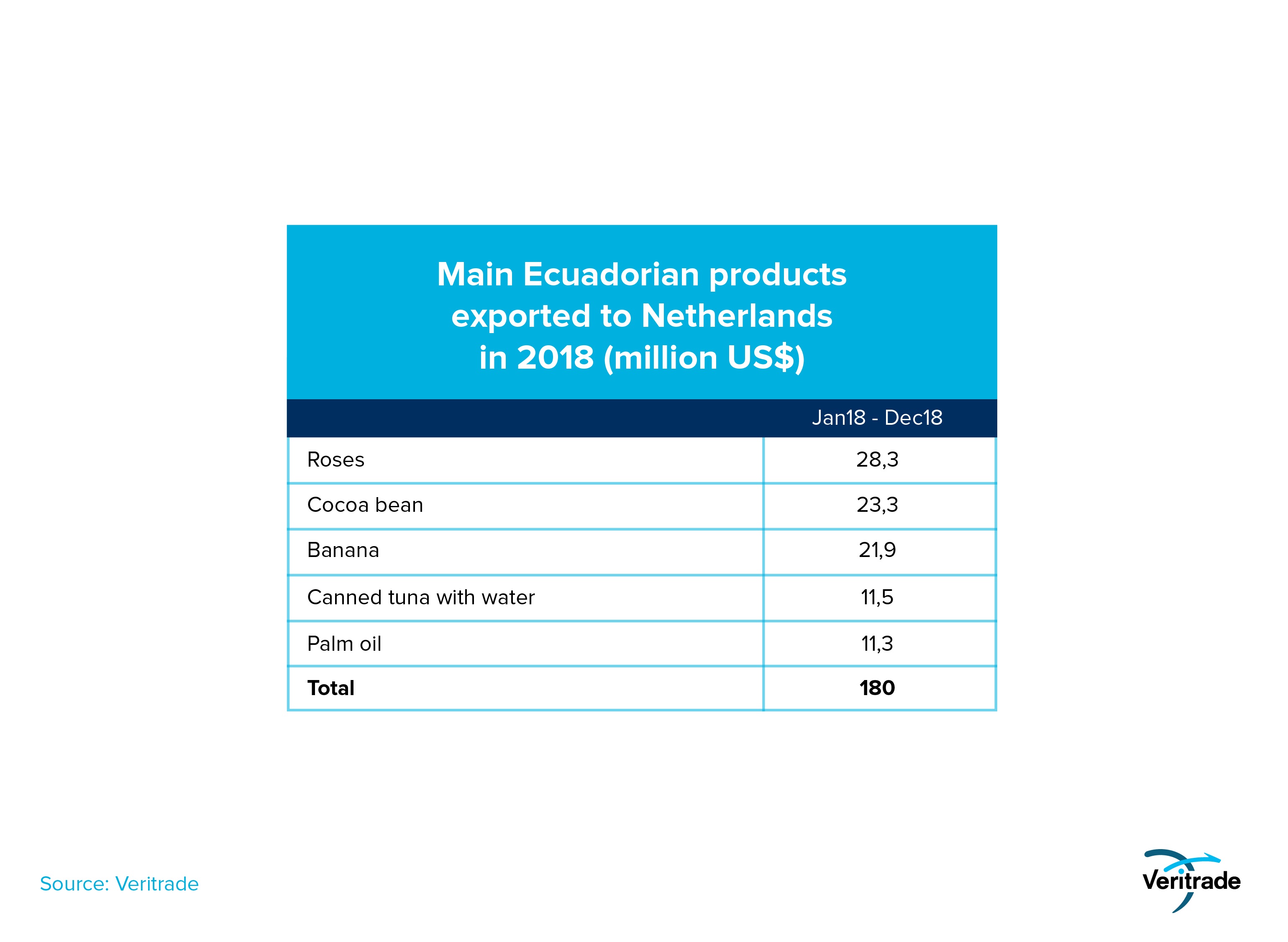
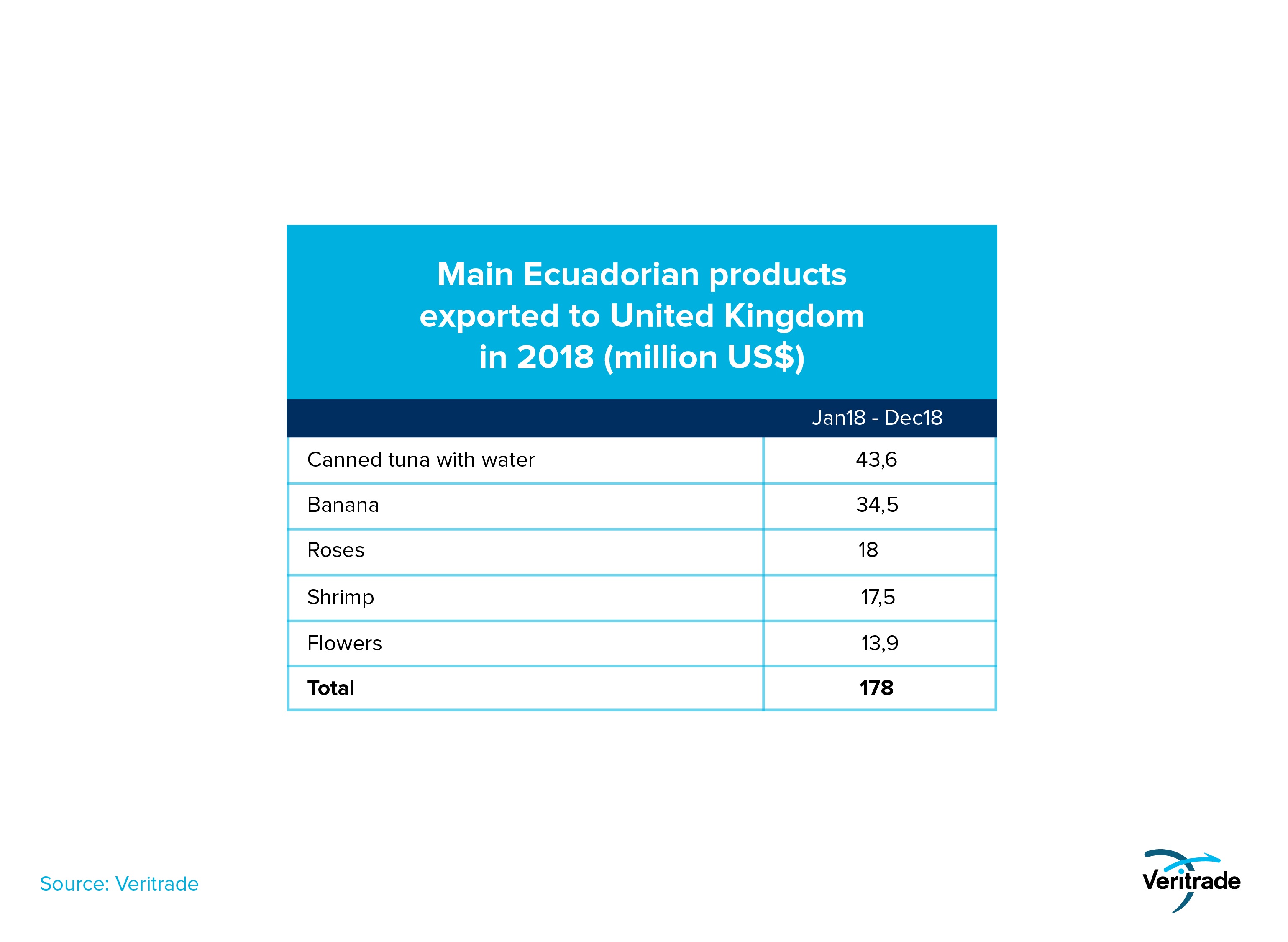
As you can see, markets with great gastronomic activity, such as Spain, France and Italy, are very important destinations for fish products. On the other hand, Ecuador has been able to continue consolidating itself as one of the main suppliers of bananas in the world, in which organic products have a large capacity and give work to small producers.
On the other hand, flowers also continue to make their way into markets with high purchasing power, such as European countries. Together with shrimp, palm and canned or precooked fish, and instant coffee, it is one of the four capital-intensive products in the large exportable supply. This implies more investment, technology and work at the workers' level, so that it takes advantage of the comparative advantages of the country's coast and jungle to boost development.
The expansion is expected to continue throughout 2019, since thanks to the signing of the agreement, it has been possible to enter 18 more countries, in comparison to the 10 that were reached before the implementation of the agreement. This is the example of the path that a country must follow to develop on the basis of more formal work, better remunerated, and with greater use of knowledge.
For more information about exports from Ecuador, you can enter the Veritrade portal.
Request your free trial by going to: https://bit.ly/2UX8CbM